-
 bitcoin
bitcoin $87959.907984 USD
1.34% -
 ethereum
ethereum $2920.497338 USD
3.04% -
 tether
tether $0.999775 USD
0.00% -
 xrp
xrp $2.237324 USD
8.12% -
 bnb
bnb $860.243768 USD
0.90% -
 solana
solana $138.089498 USD
5.43% -
 usd-coin
usd-coin $0.999807 USD
0.01% -
 tron
tron $0.272801 USD
-1.53% -
 dogecoin
dogecoin $0.150904 USD
2.96% -
 cardano
cardano $0.421635 USD
1.97% -
 hyperliquid
hyperliquid $32.152445 USD
2.23% -
 bitcoin-cash
bitcoin-cash $533.301069 USD
-1.94% -
 chainlink
chainlink $12.953417 USD
2.68% -
 unus-sed-leo
unus-sed-leo $9.535951 USD
0.73% -
 zcash
zcash $521.483386 USD
-2.87%
How is the smart contract function of BCH?
Bitcoin Cash's smart contract functionality relies on third-party platforms and protocols built atop its blockchain, leveraging its speed and low fees, unlike Ethereum's native implementation. Security and scalability remain key considerations.
Mar 15, 2025 at 12:45 pm

- Bitcoin Cash (BCH) smart contract functionality is achieved primarily through the use of third-party platforms and protocols built on top of the BCH blockchain, rather than a native implementation like Ethereum.
- These platforms leverage BCH's speed and low transaction fees, offering developers alternative avenues for deploying smart contracts.
- Several approaches exist, including using sidechains, scripting languages integrated into wallets, and platforms specifically designed for smart contracts on BCH.
- While not as mature as Ethereum's ecosystem, BCH's smart contract capabilities are steadily evolving and expanding.
- Security and scalability remain important considerations when developing and deploying smart contracts on BCH.
Bitcoin Cash (BCH), a cryptocurrency aiming for fast and low-cost transactions, doesn't have a built-in smart contract functionality like Ethereum. Instead, its smart contract capabilities are developed through various innovative approaches built on top of the existing BCH blockchain. This means that developers utilize alternative methods to achieve similar results. This approach leverages BCH’s strengths: speed and low fees, making it a competitive alternative for certain smart contract applications.
One significant approach involves the utilization of sidechains. A sidechain is a separate blockchain that runs parallel to the main BCH blockchain, allowing for the execution of smart contracts with enhanced functionality. This method offers flexibility and avoids potential congestion on the main BCH network. The security and stability of the sidechain are, however, crucial considerations.
Another method involves leveraging scripting languages integrated directly into wallets. This approach allows users to create and execute simple smart contracts without relying on external platforms. The simplicity of this method comes with limitations in terms of complexity and the range of functionalities achievable. This option is ideal for simpler smart contract applications requiring less sophistication.
Various platforms are emerging specifically designed for deploying smart contracts on the BCH blockchain. These platforms provide developers with a more structured environment and tools for building and deploying more complex smart contracts. They often offer features such as debugging tools and improved user interfaces, making the development process easier. However, the security and reliability of these platforms are paramount.
The security of smart contracts on BCH, as with any blockchain platform, is a critical concern. Developers must carefully design and audit their contracts to prevent vulnerabilities that could be exploited by malicious actors. The reliance on third-party platforms also introduces an additional layer of security considerations, requiring thorough due diligence.
Scalability is another important factor. While BCH offers faster transaction speeds and lower fees compared to some other blockchains, the scalability of smart contracts deployed on BCH will depend on the chosen implementation and the overall network load. Efficient design and optimization are crucial for ensuring smooth operation as the number of smart contracts increases.
The development of smart contract functionality on BCH is an ongoing process. The community actively explores and implements new approaches, enhancing the capabilities and maturity of the ecosystem. New platforms and tools are continuously emerging, offering improved functionalities and developer experience.
The relative novelty of BCH's smart contract ecosystem compared to more established platforms means there’s a learning curve for developers. This involves understanding the unique challenges and opportunities presented by the BCH blockchain when designing and deploying smart contracts. However, this also presents opportunities for innovation.
The choice of implementation method depends on the specific requirements of the smart contract application. Factors such as complexity, security needs, scalability demands, and developer expertise will influence the selection of the most suitable approach. Each approach has its advantages and disadvantages.
BCH's focus on fast and cheap transactions makes it particularly suitable for certain types of smart contracts, especially those that require frequent interactions or large-scale deployments. This competitive advantage attracts developers seeking an alternative to more expensive and slower platforms.
The future of smart contract functionality on BCH is promising. As the ecosystem matures, we can expect to see more sophisticated tools, platforms, and applications emerge, broadening the possibilities for developers and users alike. The community's commitment to innovation will be key to its continued growth.
Frequently Asked Questions:Q: Are BCH smart contracts as advanced as Ethereum's?A: No, the BCH smart contract ecosystem is less mature and offers fewer readily available tools and frameworks compared to Ethereum's established environment. Ethereum has a significantly larger developer community and a longer history of smart contract development.
Q: What are the advantages of using BCH for smart contracts?A: BCH offers advantages in transaction speed and lower fees, making it suitable for applications requiring frequent and cost-effective interactions. This can be a significant benefit for certain types of decentralized applications (dApps).
Q: What are the security risks associated with BCH smart contracts?A: Security risks include vulnerabilities in the smart contract code itself, as well as potential weaknesses in the chosen platform or sidechain used for deployment. Thorough auditing and security best practices are crucial to mitigate these risks.
Q: How can I learn more about developing BCH smart contracts?A: Exploring the resources and documentation provided by various BCH-focused development communities and platforms is a good starting point. Many developers share tutorials, examples, and best practices online. Keeping up-to-date with the latest developments in the BCH ecosystem is also essential.
Q: Are there any limitations to BCH smart contracts?A: Yes, limitations exist, particularly in the complexity and range of functionalities compared to more mature platforms. The relatively smaller developer community also means fewer readily available tools and support compared to Ethereum.
Disclaimer:info@kdj.com
The information provided is not trading advice. kdj.com does not assume any responsibility for any investments made based on the information provided in this article. Cryptocurrencies are highly volatile and it is highly recommended that you invest with caution after thorough research!
If you believe that the content used on this website infringes your copyright, please contact us immediately (info@kdj.com) and we will delete it promptly.
- Bitcoin's Double-Edged Sword: Navigating FOMO, Opportunity, and the Trap
- 2026-02-11 15:55:01
- ASTER Price Prediction: Rally Possible as Bullish Momentum Builds, But Gotham's Ghost Lurks
- 2026-02-11 15:50:01
- Electronic Prescriptions Revolutionize Healthcare: newsGP Embraces E-Prescribing Trend
- 2026-02-11 15:50:01
- Neo N3 Unleashes Dev Power: New Solidity Compiler Bridges Ethereum Talent to its Blockchain
- 2026-02-11 15:45:02
- Maximizing Crypto Mining Rewards: The Crucial Role of Software in 2026
- 2026-02-11 13:15:01
- Bitcoin Chart Analysis: Navigating the Bear Market Amidst Shifting Technicals and Whale Activity
- 2026-02-11 13:10:02
Related knowledge
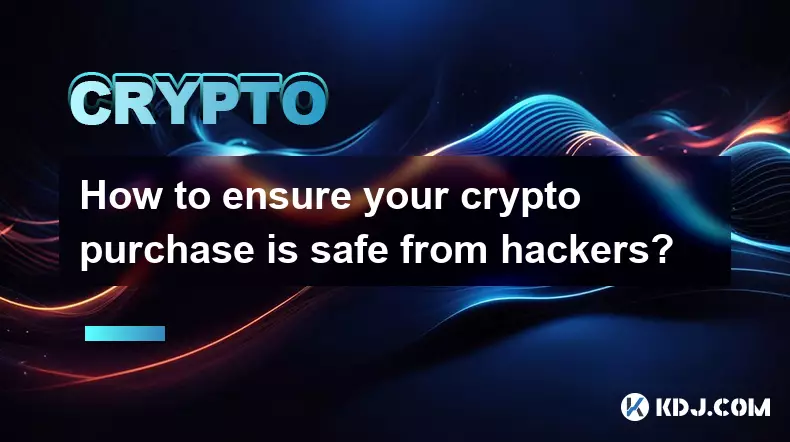
How to ensure your crypto purchase is safe from hackers?
Jan 28,2026 at 11:19pm
Secure Wallet Selection1. Choose hardware wallets for long-term holdings—devices like Ledger and Trezor isolate private keys from internet-connected s...
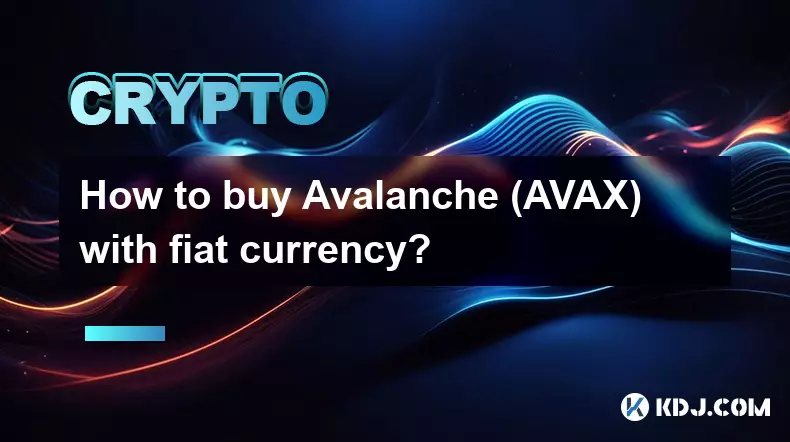
How to buy Avalanche (AVAX) with fiat currency?
Jan 29,2026 at 12:40pm
Choosing a Reliable Exchange Platform1. Identify exchanges licensed in your jurisdiction that support AVAX trading pairs with major fiat currencies li...
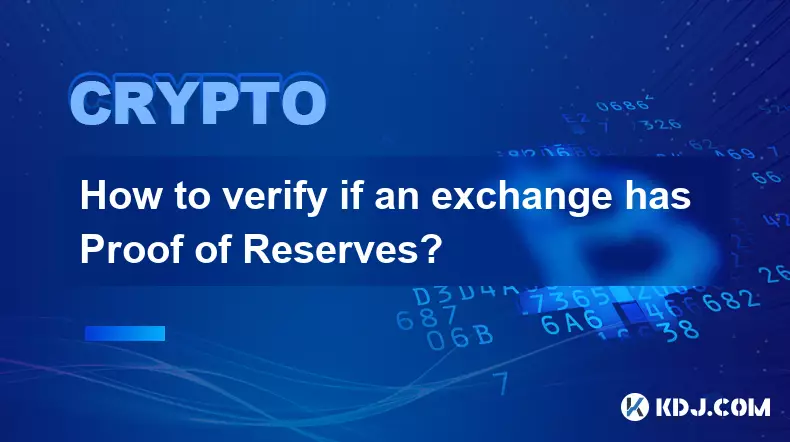
How to verify if an exchange has Proof of Reserves?
Jan 30,2026 at 06:39am
Understanding Proof of Reserves1. Proof of Reserves (PoR) is a cryptographic audit mechanism that demonstrates an exchange holds sufficient on-chain a...
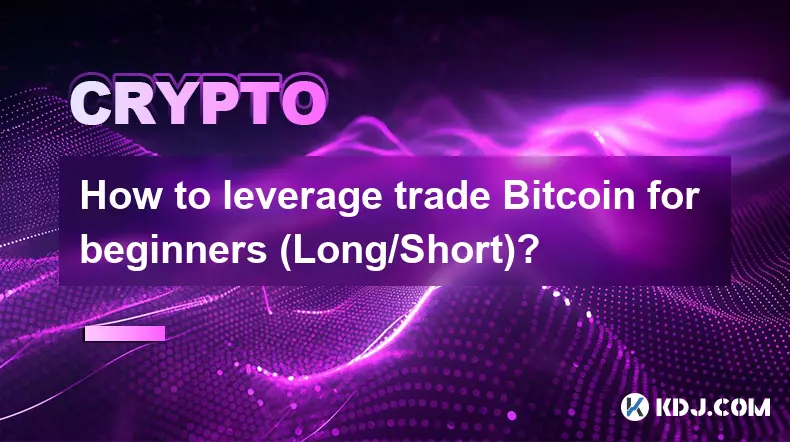
How to leverage trade Bitcoin for beginners (Long/Short)?
Jan 29,2026 at 03:19pm
Understanding Bitcoin Price Movements1. Bitcoin’s price is heavily influenced by macroeconomic indicators such as interest rate decisions, inflation d...
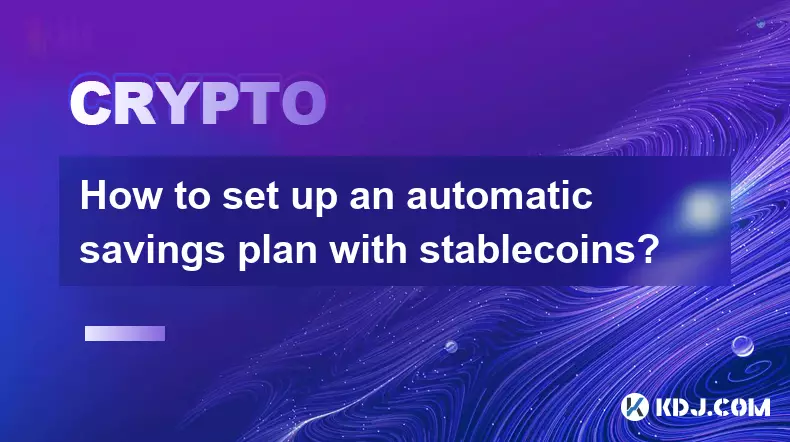
How to set up an automatic savings plan with stablecoins?
Jan 29,2026 at 06:39am
Understanding Stablecoin Savings Mechanics1. Stablecoins are digital assets pegged to fiat currencies like the US dollar, designed to minimize volatil...
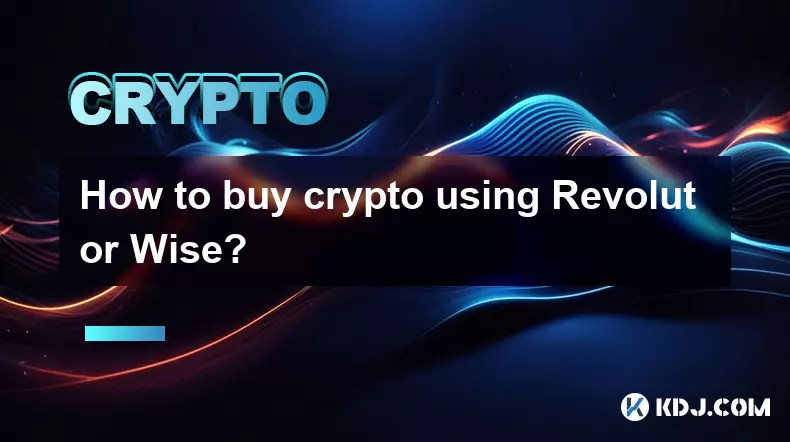
How to buy crypto using Revolut or Wise?
Jan 28,2026 at 11:00pm
Setting Up Your Revolut Account for Crypto Purchases1. Download the Revolut app and complete identity verification using government-issued ID and a se...

How to ensure your crypto purchase is safe from hackers?
Jan 28,2026 at 11:19pm
Secure Wallet Selection1. Choose hardware wallets for long-term holdings—devices like Ledger and Trezor isolate private keys from internet-connected s...

How to buy Avalanche (AVAX) with fiat currency?
Jan 29,2026 at 12:40pm
Choosing a Reliable Exchange Platform1. Identify exchanges licensed in your jurisdiction that support AVAX trading pairs with major fiat currencies li...

How to verify if an exchange has Proof of Reserves?
Jan 30,2026 at 06:39am
Understanding Proof of Reserves1. Proof of Reserves (PoR) is a cryptographic audit mechanism that demonstrates an exchange holds sufficient on-chain a...

How to leverage trade Bitcoin for beginners (Long/Short)?
Jan 29,2026 at 03:19pm
Understanding Bitcoin Price Movements1. Bitcoin’s price is heavily influenced by macroeconomic indicators such as interest rate decisions, inflation d...

How to set up an automatic savings plan with stablecoins?
Jan 29,2026 at 06:39am
Understanding Stablecoin Savings Mechanics1. Stablecoins are digital assets pegged to fiat currencies like the US dollar, designed to minimize volatil...

How to buy crypto using Revolut or Wise?
Jan 28,2026 at 11:00pm
Setting Up Your Revolut Account for Crypto Purchases1. Download the Revolut app and complete identity verification using government-issued ID and a se...
See all articles










































































